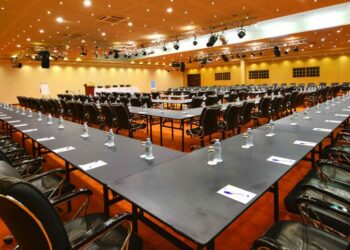By Dr Francis Mangeni
The African Continental Free Trade Area (AFTA) is here and will formally be launched at the next summit of the African Union this July in Niamey in Niger.
This is one of the biggest achievements and landmarks of all time to come out of Africa. Big and small economies including South Africa, Egypt, Ethiopia, Kenya, Ghana, Uganda, Rwanda, Namibia and Eswatini, are on board. Fifty-two of the 55 African countries have already signed the AFTA.
Through sheer political drive, and against all odds, African political leaders have in a short period of time, of just over 12 months, brought into force the largest Free Trade Area in modern history.
Africa has achieved the unthinkable. Only way back in 1995 did the world see a trade liberalization agreement on this scale when the World Trade Organization was formed, following which a backlash against unabated economic liberalism has been a significant force in the international economic order.
The winning strategy has been proactive leadership by Africa’s Heads of State and Government. At the biannual summits, progress reports have been presented, for review of progress against set targets and timelines, and corrective action taken through clear guidance and instructions.
They have reached out to each other to compare notes and mobilize their constituencies and negotiators to the effort.
The dedicated champion for AFTA, President Mahamadou Issoufou of Niger, has been tireless in reaching out to his colleague Heads of State and Government, the African Union Commission and other stakeholders, and made an indelible contribution to this monumental achievement.
The African Union Commissioner for Trade and Industry, Ambassador Albert Muchanga, with strong backing from his Chairperson, Prof Moussa Faki Mahamat, and from the Economic Commission for Africa as well as UNCTAD, activated the social-political processes for change, mobilizing key stakeholders such as the media, private sector, opinion leaders, and relevant government departments.
But as Nelson Mandela said, after climbing one big hill, you only realize you have more hills to climb. The promise of AFTA is social economic transformation, jobs and decent incomes, through doubling intra-Africa trade and industrialization.
To deliver on this promise, ratification and entry into force, though a fundamental step, now requires rapid progress in and completion of other equally important areas.
Rules of origin determine which products can be traded under the terms and benefits of the Free Trade Area (FTA). Without them, the FTA will not work. AFTA must, therefore, complete the exercise of developing the rules of origin.
So far, 33.3 per cent of the chapters are completed, and 58.3 per cent are partially completed, mostly the thresholds yet to be agreed.
If a general cross-cutting or default threshold were agreed, say 60 per cent for the maximum value of non-originating material, this could expedite the process, so that focus is on those product lines which will require different thresholds.
Another way could be to adopt the rules of origin so far agreed by the COMESA-EAC-SADC Tripartite Free Trade Area, now amounting to 93.24 per cent of the total product lines, that is, 5,012 products. This would greatly fast-track the commencement in earnest of trading under AFTA.
Another sine qua non for AFTA to become functional is that the countries must add in their Tariff Books, the customs duty rates that will be charged on goods originating from other Tripartite countries.
For countries that wish to maintain and extend to others, a subject of course to reciprocity, their current trading terms under the full FTAs they belong to, for instance, COMESA, EAC, ECOWAS and SADC, modification of the Tariff Books will be very easy, a clerical exercise of mere hours.
Also, countries that have eliminated or significantly reduced their general or Most Favoured Nation (MFN) duties, such as Libya, Mauritius, and Seychelles, should not face challenges in making tariff modifications for AFTA.
However, a bit of work and further negotiations will be required among those who will limit their trade liberalization in line with the AFTA modalities. Ninety per cent of product lines will be liberalized over transition periods of 5, 10, 13 or 15 years.
Seven per cent will be sensitive products, and three per cent will be excluded from AFTA altogether. Sorting out which products to put under these various categories, as a pre-requisite exercise, can end up being a pitfall if proactive hands-on technical and financial support is not quickly rolled out throughout the continent.
A third pre-requisite for trade to happen under AFTA is the necessary customs, standards and trade facilitation documents. These need to be quickly produced by the governments and availed to economic operators for use. Without them, trade cannot happen on AFTA terms.
There is a need for an AFTA Customs Declaration, an AFTA Certificate of Origin, AFTA transit documents, in addition to the five universal documents as well as product-specific requirements, especially in the agricultural sector.
Should all these pre-requisites begin to pose challenges, an easy way forward to put the AFTA face to trade on the continent, would be to scale up the on-going Trade Facilitation Programs, such as building one-stop-border-posts, digitization of customs and other regulatory processes, orientation of existing surface and air corridors into development corridors, adoption of continent-wide payment systems, operationalization of market-intelligence facilities, and establishment of online and SMS-based mechanisms for addressing non-tariff barriers and some other trade disputes. These are low hanging fruits, so to speak.
Pitfalls of economic integration in Africa have been legendary, leaving some transformational programs unimplemented and their benefits denied. Inadequate domestic institutions and skilled staff, has been a key constraint. This has meant that there are no people to do the job.
Economic integration programs have not been tangibly mainstreamed into national medium and long-term plans of Member States, nor in the annual budgeting cycles. This has meant that economic integration has been left out of government policy, and not implemented.
Ownership and knowledge of economic integration programs has been terribly low or totally absent among key stakeholders, such as economic operators especially industry and logistics, enforcement agencies including lawyers and the judiciary,capability-enhancing institutions especially universities and technical schools, grass roots movements and opinion leaders.
These pitfalls need to be watched, and corrective action taken, through continuous proactive engagement, to rally all stakeholders to the effort. The very worst thing that can happen now would be to consign AFTA to the shelves, to gather dust unimplemented.
The very same proactive leadership that has been deployed to get the negotiations and ratifications done, is now required even more to ensure implementation of AFTA and results on the promise of doubling intra-Africa trade, and creating jobs and decent incomes, for social economic transformation.
The author is the Director of Trade and Customs at the COMESA Secretariat
Contact: fmangeni@comesa.int
Do you have a story in your community or an opinion to share with us: Email us at editorial@watchdoguganda.com












